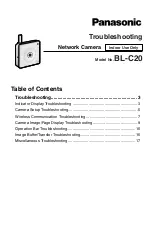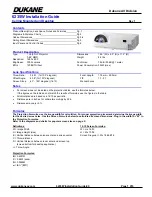
42
z
Your camera is a precision instrument which requires careful handling. Do not
expose it to shock, liquid, or drop it on the floor.
q
If you use the camera at the seaside or in light rain, be careful not to get it
wet. Also be careful not to put the camera in places where it will be easily
exposed to sand-.
w
Dropping the camera on the floor or striking it against hard objects
sometimes causes trouble even though it may be in the camera case. Also
do not put the camera in places where it is exposed to vibrations (such as
the trunk of a car).
x
If you are not using your camera for a long time, keep it where it will be safe
from heat, moisture, dust, and harmful gases (such as naphthalene which is
used in drawers).
c
This advanced photo system magnetically records the information on the film.
Therefore, do not expose film cartridges or a film cartridge loaded camera to
strong magnetic fields.
v
Do not put the camera in a closed car for a long time.
b
It is recommended that undeveloped film and cameras containing film are
carried as hand luggage when using aircraft. If included in checked-in
baggage, X-ray inspections may cause overprinting or other effects.
n
Remove soil and dust from the lens, the AF window and the finder with an air
blower and by wiping lightly with a piece of soft cloth. If that is not enough,
wipe off gently with Lens Cleaning Paper, moistened slightly with Lens
Cleaning Liquid. Do not use organic solvents such as alcohol and benzene.
m
The operating temperature range of the camera is from –10°C to +40°C.
CAMERA CARE AND CAUTIONS






































